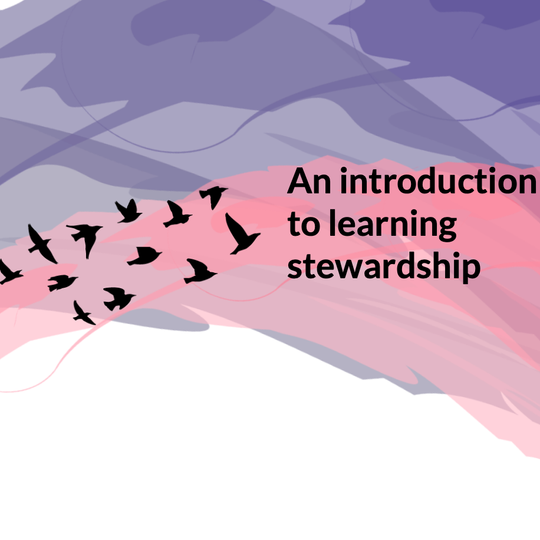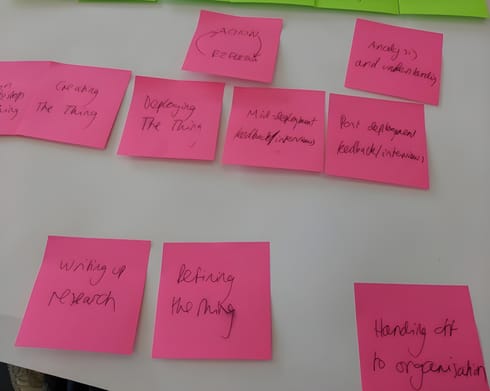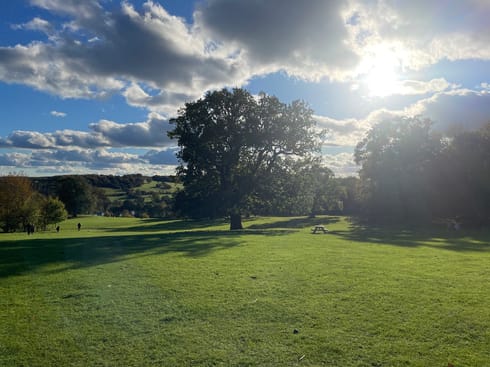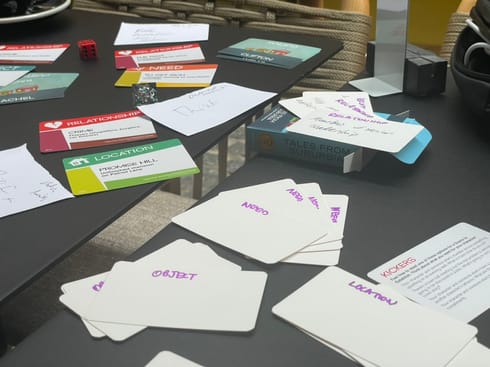
How to get started with learning stewardship
If you follow our work, you’ll know that we’re doing monitoring, evaluation, and learning (MEL) a little differently.
We see MEL work as an incredibly important part of the process of delivering public services, but too often it becomes a bureaucratic activity. Something people dread. We can’t count the number of times we’ve felt people instinctively recoil and freeze up when the word “evaluation” gets said.
If MEL work focuses too closely on producing quantitative outcomes—things that you think you can count—then it can disconnect people from the importance of evaluation and make their workplaces a less human place to work. It makes them freeze up, because they think of boring forms that have no connection to their actual work—just a tacked-on, tickbox extra.
We’ve written before about using theories of change as a way to build aligned practice in teams and “signalfinding”—identifying what the desirable states or potential outcomes of a project are. This informed our work in developing an evaluation approach that prioritises the expertise and insights of frontline workers.
We’ve shared the nuts and bolts of how we designed that approach already—signals, strategies, and stories, identified and paid attention to by frontline workers in participatory learning groups. The people who actually do the delivery work should be the people front and centre in evaluation but it also needs to fit alongside the work they’re actually here to do.
Below, we share the resources we use to help onboard new learning stewards. You can use these as the first touchpoint in your learning stewardship programme or you can ask us to help you adapt these to your context.
An introduction to learning stewardship
You can find our introduction to learning stewardship here:
We’ve run this with all new learning stewards on our current programme with Barnardo’s and The Co-op. We like to use this in a 1 hour or 1.5 hour session. We’ve successfully been using these to onboard new learning stewards for almost a year now.
In these slides, we outline what we do in our learning groups, and recommend that you run a mini learning group session with people as part of this introduction. We also give some advice on doing light-touch but high-quality research for people who haven’t done research before.
Don't take our word for it: here's some feedback from two of our learning stewards:
What I’ve really enjoyed about our meetings is how conversations from other people/perspectives help me to formulate my own answers – it’s a dynamic environment that shapes my evaluation. I come out with more thorough and nuanced answers than if I was to write them down without sharing and hearing what others think.
The sessions have been super helpful in both evaluating and informing our practice. The sessions provide a brilliant platform to offload, learn from each other, and unpack how the service has been, looks now, and what it could become.
Everyone at fractals does such a great job because I am not a talking in an online meeting kind of person, but the sessions are structured and run in such a way that I - we! - feel super comfortable to share and I genuinely look forward to the meetings!
We’re releasing these under CC-BY-SA. That means you are free to:
- Share — copy and redistribute the material in any medium or format for any purpose, even commercially.
- Adapt — remix, transform, and build upon the material for any purpose, even commercially.
If you do that, you have to attribute us and distribute your own contributions under the CC-BY-SA licence too.
If you use these, we’d love to hear about it. Get in touch.



